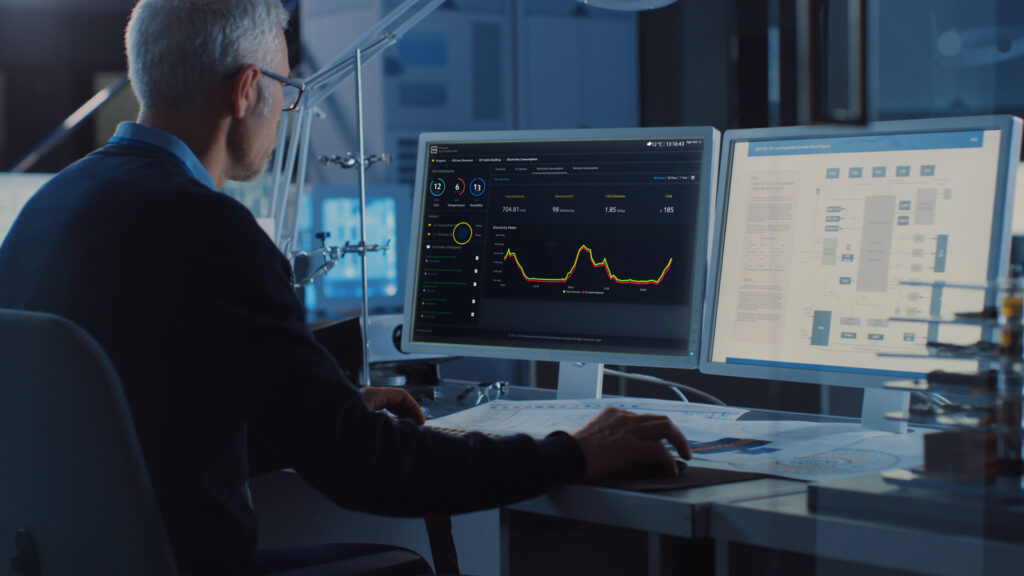IES Live cloud platform offers ‘next generation’ building energy, carbon and comfort management
IES has launched a new cloud-based platform designed to utilise energy models throughout a building’s lifecycle. With IES Live, an IES ‘Performance Digital Twin’ can be hosted online and connected with operational building data with a view to enabling continuous tracking and improvement of building performance.
According to the company, IES Live allows sustainability, energy and facilities teams to take control of building operation, reduce energy risk, increase resilience, unlock net-zero potential, and deliver healthy and comfortable spaces.
The IES Live platform connects near real-time operational building data with daily simulations from IES Digital Twins that are hosted online.
It delivers a single pane ‘dashboard’ view across key operational performance data, highlights when the building moves away from optimal performance as predicted by a physics-based simulation, and delivers daily insights on the cost, comfort and carbon impacts of customised operational improvement strategies.
IES Live can display near real-time energy and carbon emission performance data from utility meters, BMS systems and IoT sensors, against a predicted ‘ideal’ energy benchmark, and, if available, occupancy data.
The performance of implemented net-zero improvement strategies can be tracked, to help ensure they deliver expected savings. Information on how spaces are performing against the indoor air quality metrics of CO2 levels, temperature and humidity are also included.
Physics-based energy modelling, delivered by the IES Apache simulation engine, which is certified for use on multiple energy performance building regulation compliance routes around the world, is used in the IES Performance Digital Twin. According to IES, this ensures that the energy benchmark is specific to individual buildings, their specific uses, location and local weather.
A calibrated energy model that powers IES Live can be created in numerous different ways. In what IES refers to as Sleeping Digital Twins, an existing energy model created at design can be ‘re-awoken’ and connected to building performance data if available, or it can be created from scratch from CAD/BIM files.
“Improving the operation of buildings is key to mitigating energy and climate risk, cutting costs and emissions, meeting sustainability objectives and increasing resilience, not to mention being a vital part of a successful net zero strategy,” said Richard Fletcher, CRO at IES. “However, you can’t improve what you can’t measure and there was a gap in the market for a tool that can connect live and simulated operational data, providing continuous insights and giving energy management teams a holistic view of how their building is performing.”
“Through successful pilot projects we have seen first-hand the benefits of IES Live in providing detailed insight on ongoing energy and carbon performance, as well as assessing the impact of retrofit measures, verifying predicted results and allowing informed decisions to be made on building improvements.”






